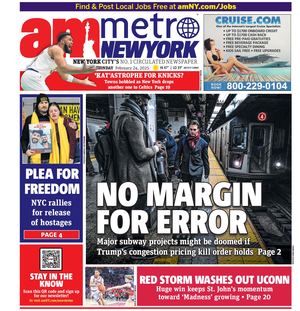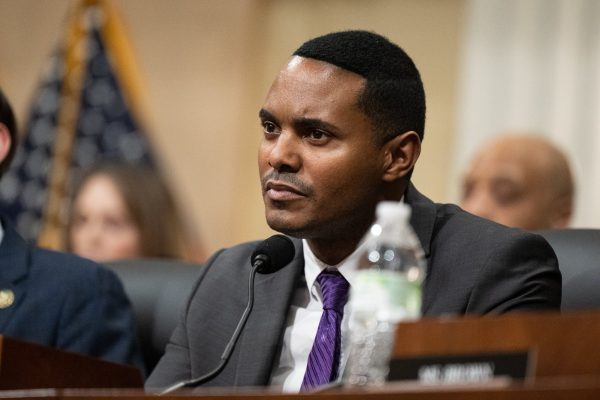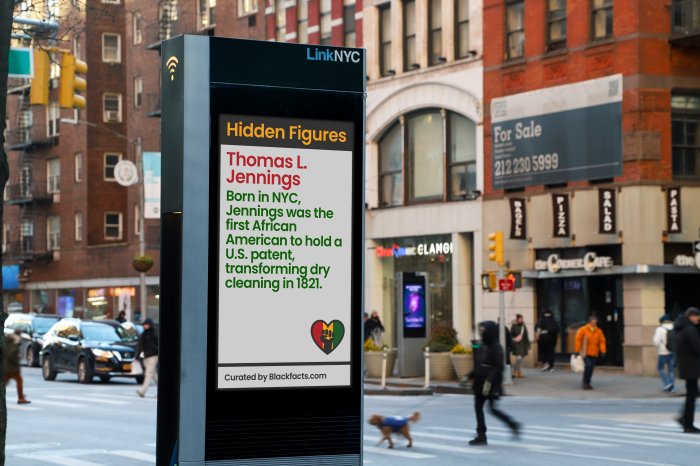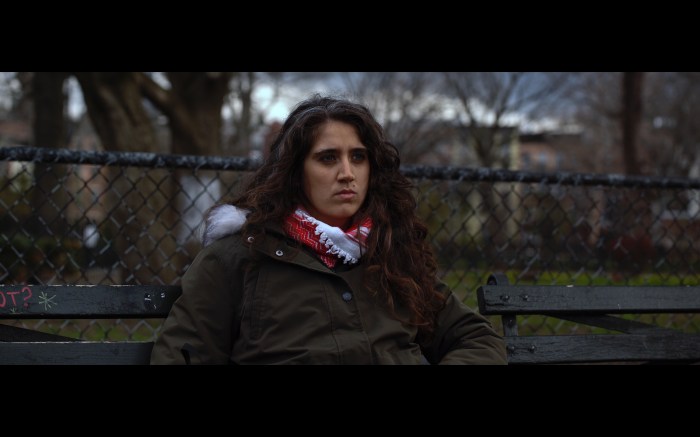
The moderator issued Joe Gonzalez a warning before he asked his question at a recent town hall with Mayor Bill de Blasio in Bed Stuy.
“I’m gonna remind you of what the criteria is,” said Council member Robert E. Cornegy Jr., who was hosting the event. “Because we love you Joe . . . One succinct question.”
So Gonzalez — a frequent community board attendee, longtime radio show caller, veteran gadfly — kept it short. The 46-year-old asked whether the city would consider putting a dent in its housing crisis by building housing on open land around historic Floyd Bennett Field, the airport from aviation’s golden days now neglected far out in Brooklyn.
“Give him a round of applause,” said de Blasio, with apparent relief. “I’ve known you for a lot of years. You’re a righteous man, but I’ve never known you to be a succinct man. Thank you, Jesus.”
And then he went on to consider Gonzalez’s idea.
A model citizen
In an era when many New Yorkers are rediscovering political activism, Gonzalez is a model of civic engagement who has needled politicians and officials for years and, sometimes, gotten results.
“There’s nothing in the world like grabbing the mayor’s attention,” Gonzalez said in an interview, recalling his question for de Blasio, who he has followed (and sometimes interrogated) since the politician’s days as a council member. Gonzalez is employed as a custodian in an office building in Downtown Brooklyn, but the lifelong Brooklynite also puts in plenty of work getting his voice heard (and reaching out to reporters when it isn’t).
There was the street sign in his neighborhood, for example, that incorrectly spelled Lafayette Avenue as “Layfayette” at the street’s intersection with Malcolm X Boulevard. Gonzalez, who grew up in Fort Greene and has lived in Bed Stuy for nearly a decade, says he reached out to elected officials. Eventually, with some press coverage, the sign was fixed.
Some of the problems he identifies are more difficult to address. Gonzalez has watched with some trepidation as his part of Brooklyn has changed. He has tracked the small shifts: the strains that newcomers have added to local infrastructure, for example, on schools and trains.
The largest problem, though, might be the high rents and housing shortage that has contributed to citywide increases in homelessness and a raging debate in Gonzalez’s neighborhood about de Blasio’s plan to build a shelter there.
Gonzalez supports the new shelter but thinks other neighborhoods should do their fair share, too. And, more housing is necessary, perhaps in places where the city isn’t as dense and crowded. Hence, the idea for Floyd Bennett Field.
Gonzalez was there not long ago to watch a bike race and was struck by the open space. It’s hard not to be — the surrounding parkland of marsh and beach spreads for miles, and there are large swathes of land around the airport’s old hangars, some of them turned into a recreational sports facility but still plenty of ghostly concrete roads and mostly empty military structures in need of rebirth.
In his response to Gonzalez, de Blasio said he liked the idea of building high-quality public housing, but the economics were difficult and the spot may be too isolated and far from transit. The land is federally owned, according to the Department of City Planning, making city action complicated. “But I do appreciate your point,” de Blasio said.
Gonzalez got an email from someone in the administration after the town hall, saying they were still looking into it and that City Hall hadn’t forgotten about the idea.
The churn of ideas
Neither the email nor de Blasio mentioned, however, that something like Gonzalez’s idea was considered once before. In 1981, the city attempted to place some 400 “derelicts,” in the phrase of the time, in an abandoned barracks at the field. Then-Mayor Ed Koch’s administration faced many of the same problems de Blasio contends with today — homeless individuals on the street near the top of the list. Nowhere for them to go. And communities staunchly opposed to accepting them. Skepticism for the Floyd Bennett Field plan was raised by locals and even a certain young congressman from Brooklyn, Chuck Schumer. The plan was dropped.
Would a similar plan be better received by the community today? “It would never go anywhere,” says Dorothy Turano, district manager of the area’s community board. Such boards tend to play an outsize role in land-use decisions: they have been partly responsible for slowing the mayor’s affordable housing plan so far, and he has sometimes backed off. Big city-built housing on Floyd Bennett Field, which, to top it off, is a historical gem? De Blasio “wouldn’t dare.”
That may be the response Gonzalez ultimately gets from the mayor too regarding his idea. But he has more.
































